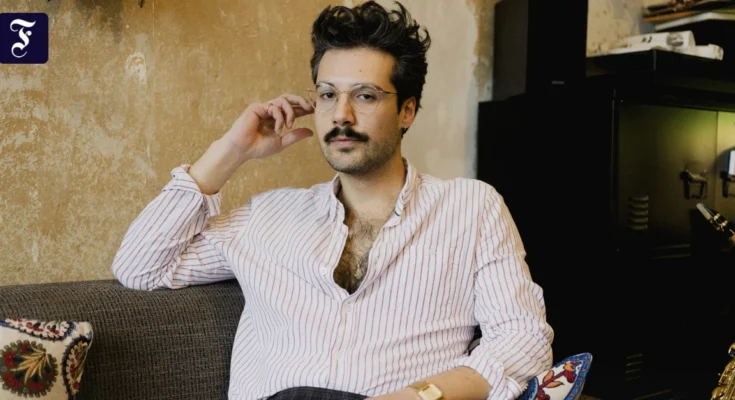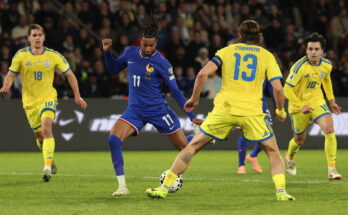Dogs are unclean, said Dede, and we must clean ourselves thoroughly before praying if we touch them. It is cooked seven times in water and once in earth where the saliva soaks the skin or clothing. You certainly can’t call Zeko’s late grandfather a friend of four-legged friends. The insult he uses to describe the wandering neighbor boy, Hassan, is also serious: bastard.
When Zeko dreams of summer in Adana, he misses both Dede (grandfather) and Hassan, although in different ways. Zeko remembers the wise Dede with great admiration. On the other hand, he misses Hassan. From the smell mixed with citrus, salt and cigarette smoke, from the proximity. Zeko would see him again in nine days. He counted down the remaining time like a countdown; everyday life in Berlin weighed heavily on him. Most of all, online dating relentlessly bothers him – Zeko has pubic lice again, but has yet to find love.
The dopamine kick is followed by a period of depression. The therapist recommends staying off the internet, but what does she know about Zeko? On the topic “What I would never say to my therapist” he brings up 44 important points. They range from “I’ve been masturbating with socks since fifth grade” to “When the guys bow during Friday prayers, I look at their butts” to “Pırasa, Anne’s spring onion soup, is not my favorite food at all, I hate it, it tastes like old socks I once wore.”
What does the majority of society do to Muslims like Zeko
The novel “Son of a Dog” by Ozan Zakariya Keskinkılıç does not reduce freedom; it’s full of gay sex from the start. Anyone offended by this will basically be offended by the first-person narrator, Zeko: the son of Turkish immigrants of Arab origin, no-nonsense, openly quirky and a devout Muslim – this is highly provocative for much of society. “Dog Son” tells the story of their hatred for Zeko since his kindergarten days.
This is the first novel by writer Keskinkılıç, who was born in 1989 and holds a doctorate in political science, and frequently addresses motifs and themes that he had developed in his poetry volume “Prinzenbad” and the essay “Muslimaniac – The Career of an Enemy.” It’s about assimilation pressures and identity pressures, monocultural ignorance and anti-Muslim racism. The more overtly the West German reality rejects Zeko in the novel, the less he wants to belong. His defiance turns into aggression, for example when he makes fun of his narrow-minded former classmates, Lea, Tim, and Max. Even though the tip against the Almans wears down every time it is poked, you still feel like you are being stabbed. The mockery of the bio-German condition was an act of self-defense, and the provocation was also entangled in contradiction. In the end, Zeko wanted what he was denied.
Kafka as soul mate
Hassan, for example, who only returns caresses under the cover of darkness. Or become a recognized part of Germany, which treats Zeko like a leper. Fittingly, Keskinkılıç’s novel is preceded by two mottos from now canonized outsiders: one by Kurt Tucholsky, the other from a fragment of Franz Kafka’s “The Castle.” In Kafka, Zeko finds a soul mate; The surveyor’s plight in front of the impassable gate reflects his own suffering. The final punchline of “The Son of a Dog” is hidden in an allusion to another story by Kafka. It was a moment of repentance that of course had nothing to do with Hassan in Adana.
Keskinkılıç’s debut reads quickly: the short chapters are varied, the biting humor proves accurate, and the deliberately flowery imagery is carefully crafted. On the other hand, something similar happens with repetitions and cycles of repetition such as prayer wheels; They first developed the biographical sketch into a novel, which as a whole appears contrived, planned on a drawing board. Firstly, because Keskinkılıç often samples his previous works. Fittingly, the protagonist refers to himself as “Zakariya”, a less common pet form, Zeko, only used four times. Nevertheless, the blurb refers to this name, perhaps to obscure the autofictional reference. Most importantly, the unsurprising structure of it all hardly befits the sordid nature of his lectures.
To which readers is this book addressed?
These things don’t really work together, and reflection on linguistic diversity is also left behind: “One language, one people. Two languages, two peoples. That is, the more languages you speak, the bigger your world, the bigger you are.” It sounds cosmopolitan at first, but Zeko is primarily interested in his own roots, ultimately developing based on a clear concept of identity. Even though they’re at odds with each other and Zeko can’t get them to work together, he surrounds himself with such madness that any reference to Kafka comes to nothing.
Which brings us back to the contradiction. Because which reader is actually the target here? Of course, a novel has the potential to appeal to everyone, but it never appeals because of its branding. The majority of Suhrkamp’s audience probably still consisted of the educated middle class that “Puppies” favored. Did everyone involved in the book know this? While it doesn’t have to be, we are after all talking about literature and a respectable debut novel. However, as a poet and essayist, Ozan Zakariya Keskinkılıç is by far more convincing.
Ozan Zakariya Keskinkılıç: “Puppy”. Novel. Suhrkamp Verlag, Berlin 2025. 219 pages, hardcover, €24.



